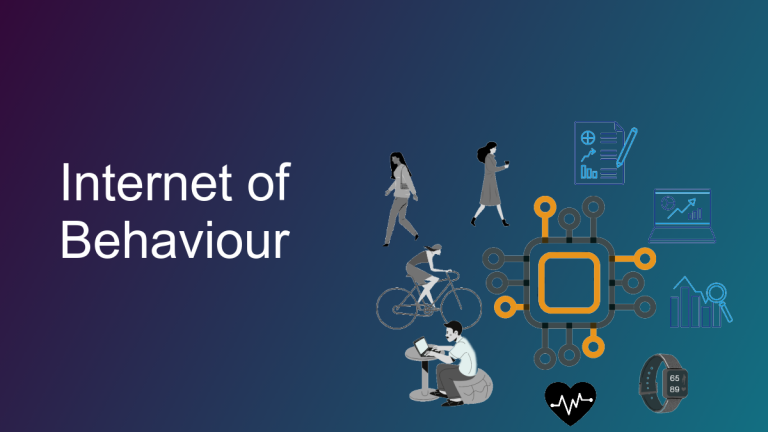We all know what the internet of things is. It’s a network of devices that collects data, analyses it, and lets users control their devices remotely (in simple terms). The Internet of behaviour is like a subcategory of the internet of things. Gartner predicts that the internet of behaviour will be one of the top technology trends in 2021. So what exactly is the internet of behaviour or IoB? Let’s have a look.
Internet of Behaviour
The Internet of behaviour is related to collecting data about human behaviour, analysing and using it to change it favourably. That definition does sound a bit invasive, and the fact is, it could be. The simplest example is how your location data may be used for targeted ads. But rather than targeting everyone in a location, a fast-food chain may target customers who regularly go out for food.
But it doesn’t have to be sinister like that. You could say that Coronavirus triggered the rise of the IoB. Companies can use the internet of behaviour to ensure their employees are following proper hygiene and social distancing protocols.
An important fact to be understood is that, while the internet of things deals with raw data and lower level analytics to take action, the internet of behaviour uses a higher-level understanding of user behaviour. The internet of things is more direct; simply ask your digital assistant to set the temperature in your house before you get there or have your doorbell show you who is at your doorstep. The internet of behaviour is more about understanding the temperature preferences of a user and nudging them towards buying a product or to reducing their power consumption.
More than a different technology, internet of behaviour is more about using the internet of things to derive insights and apply the knowledge for business gains.
Applications of the internet of behaviour
As anyone can guess, the major application of IoB will be for marketing. The advent of social media has lead to a huge rise in consumer analytics and targetted advertising. Social media has made it easier for companies to reach their target audience where they spend their time.
A similar boom can be expected with the internet of behaviour. Just like the smartphone boom helped with the rise of social media, the rise in popularity of internet of things devices will definitely lead to the use of internet of behaviour.
If you just consider the last few years alone, the number of people sporting smart bands or fitness trackers have increased exponentially. There also has been a similar increase in the presence of digital assistants in homes. These devices present a treasure trove of data about consumer behaviour.
Internet of behaviour in healthcare
The Internet of behaviour presents an amazing opportunity to study how different lifestyles impact the health of a person. Most wearables or trackers currently offer suggestions based on a baseline reading comparison. With the IoB, a deeper understanding of the individual’s physiology may be gained.
Along with specific suggestions and nudges to guide an individual, IoB can help further research. Observations made under lab conditions can affect the results of the study. But with IoB, better data about real-world behaviour of individuals can becollected and studied.
Ethical and moral concerns of the IoB.
The rise in social media and targeted advertising has raised a lot of concerns about privacy. And social media only monitors our online activities. But with the internet of behaviour, our activities in the physical world may be tracked too. Our geographical data is used for targeted advertising even with a simple smartphone.
Imagine if someone, (or some algorithm) listened to our smartphone mics to understand what we want and used it for targeted advertising? With IoB, something very similar may happen. While algorithms may not use our audio conversations, IoB will certainly make use of data from other sensors.
It may not be long before someone uses your conversation with Alexa to sell you something(if that isn’t happening already). An insurance company that offers reduced premiums for clients who use a fitness band may use the band to track the eating habits to further adjust the premiums.
Just like IoT or AI, IoB will likely be a compromise between privacy and comfort. And for IoB to work, it will probably have to collect data and analyse it at an unprecedented level. While we would appreciate getting notified of any health issues we may have, concerns on how the data will be used will exist. Privacy laws may have to be amended to curb the abuse of the IoB.
But the scope of “internet of behaviour ” is yet to be seen. It is likely to exceed all of our expectations. So it’s hard to predict the type of legislation we will require to curb abuse.




